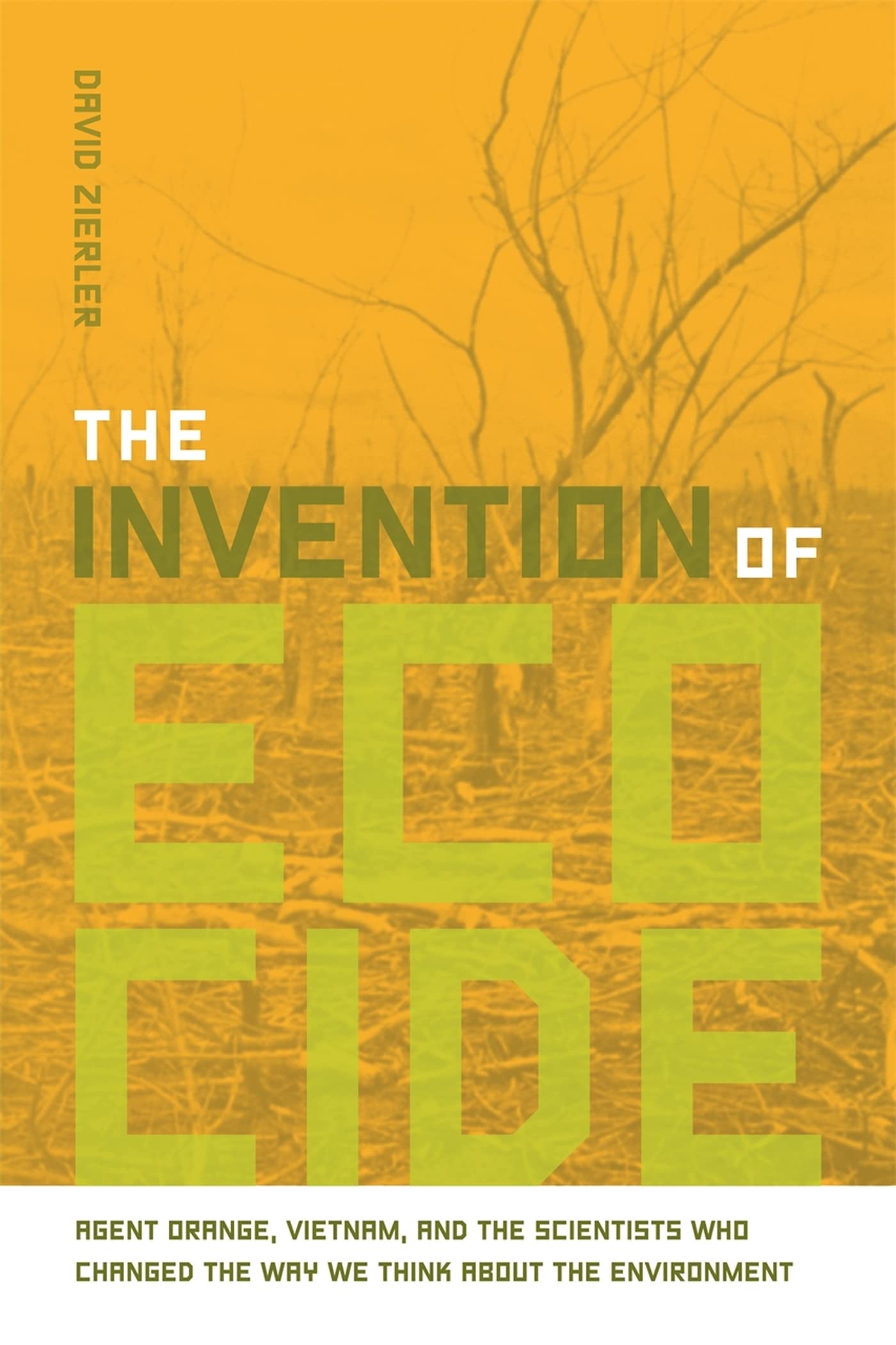
Title

The Invention Of Ecocide: Agent Orange, Vietnam, And The Scientists Who Changed The Way We Think About The Environment
Delivery time: 8-12 business days (International)
As The Public Increasingly Questioned The War In Vietnam, A Group Of American Scientists Deeply Concerned About The Use Of Agent Orange And Other Herbicides Started A Movement To Ban What They Called Ecocide.David Zierler Traces This Movement, Starting In The 1940S, When Weed Killer Was Developed In Agricultural Circles And Theories Of Counterinsurgency Were Studied By The Military. These Two Trajectories Converged In 1961 With Operation Ranch Hand, The Joint U.S.South Vietnamese Mission To Use Herbicidal Warfare As A Means To Defoliate Large Areas Of Enemy Territory.Driven By The Idea That Humans Were Altering The Worlds Ecology For The Worse, A Group Of Scientists Relentlessly Challenged Pentagon Assurances Of Safety, Citing Possible Longterm Environmental And Health Effects. It Wasnt Until 1970 That The Scientists Gained Access To Sprayed Zones Confirming That A Major Ecological Disaster Had Occurred. Their Findings Convinced The U.S. Government To Renounce First Use Of Herbicides In Future Wars And, Zierler Argues, Fundamentally Reoriented Thinking About Warfare And Environmental Security In The Next Forty Years.Incorporating Indepth Interviews, Unique Archival Collections, And Recently Declassified National Security Documents, Zierler Examines The Movement To Ban Ecocide As It Played Out Amid The Rise Of A Global Environmental Consciousness And Growing Disillusionment With The Containment Policies Of The Cold War Era.
By changing our most important processes and
products, we have already made a big leap forward. This ranges from the
increased use of more sustainable fibers to the use of more
environmentally friendly printing processes to the development of
efficient waste management in our value chain.
⚠️ WARNING (California Proposition 65):
This product may contain chemicals known to the State of California to cause cancer, birth defects, or other reproductive harm.
For more information, please visit www.P65Warnings.ca.gov.
Shipping & Returns
Shipping
We ship your order within 2–3 business days for USA deliveries and 5–8 business days for international shipments. Once your package has been dispatched from our warehouse, you'll receive an email confirmation with a tracking number, allowing you to track the status of your delivery.
Returns
To facilitate a smooth return process, a Return Authorization (RA) Number is required for all returns. Returns without a valid RA number will be declined and may incur additional fees. You can request an RA number within 15 days of the original delivery date. For more details, please refer to our Return & Refund Policy page.
Shipping & Returns
Shipping
We ship your order within 2–3 business days for USA deliveries and 5–8 business days for international shipments. Once your package has been dispatched from our warehouse, you'll receive an email confirmation with a tracking number, allowing you to track the status of your delivery.
Returns
To facilitate a smooth return process, a Return Authorization (RA) Number is required for all returns. Returns without a valid RA number will be declined and may incur additional fees. You can request an RA number within 15 days of the original delivery date. For more details, please refer to our Return & Refund Policy page.
Warranty
We provide a 2-year limited warranty, from the date of purchase for all our products.
If you believe you have received a defective product, or are experiencing any problems with your product, please contact us.
This warranty strictly does not cover damages that arose from negligence, misuse, wear and tear, or not in accordance with product instructions (dropping the product, etc.).
Warranty
We provide a 2-year limited warranty, from the date of purchase for all our products.
If you believe you have received a defective product, or are experiencing any problems with your product, please contact us.
This warranty strictly does not cover damages that arose from negligence, misuse, wear and tear, or not in accordance with product instructions (dropping the product, etc.).
Secure Payment
Your payment information is processed securely. We do not store credit card details nor have access to your credit card information.
We accept payments with :
Visa, MasterCard, American Express, Paypal, Shopify Payments, Shop Pay and more.
Secure Payment
Your payment information is processed securely. We do not store credit card details nor have access to your credit card information.
We accept payments with :
Visa, MasterCard, American Express, Paypal, Shopify Payments, Shop Pay and more.
Related Products
You may also like
Frequently Asked Questions
- Q: What is the main topic of 'The Invention of Ecocide'? A: The book discusses the movement to ban ecocide, focusing on the use of Agent Orange during the Vietnam War and the efforts of American scientists to address the environmental impacts of herbicidal warfare.
- Q: Who is the author of this book? A: The author of 'The Invention of Ecocide' is David Zierler.
- Q: What year was the book published? A: The book was published on May 1, 2011.
- Q: How many pages does the book have? A: The book contains 252 pages.
- Q: What type of binding does the book have? A: The book is available in paperback binding.
- Q: What is the condition of the book? A: The book is in new condition.
- Q: What historical events does the book cover? A: The book covers the historical context of the Vietnam War, the development and use of herbicides, and the subsequent ecological impact and movement against ecocide.
- Q: Are there any interviews or documents included in the book? A: Yes, the book incorporates in-depth interviews, unique archival collections, and recently declassified national security documents.
- Q: What audience would benefit from reading this book? A: Readers interested in environmental history, military history, or the intersection of warfare and ecology would find this book valuable.
- Q: Does the book discuss the implications of ecocide on modern environmental policies? A: Yes, Zierler argues that the movement against ecocide fundamentally reoriented thinking about warfare and environmental security over the following decades.
